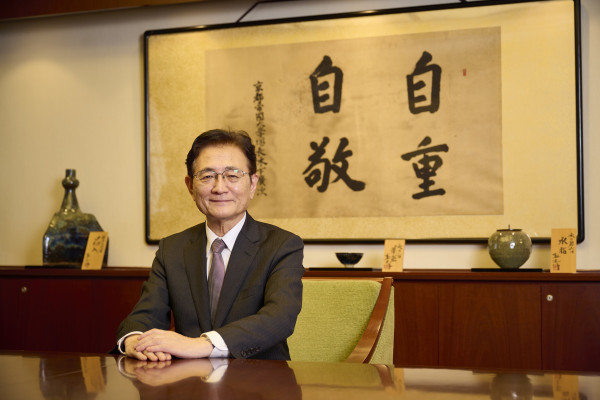Kyoto University was established in 1897 as Japan's second imperial university. At that time, the role of science and technology in society was rapidly expanding, and momentum was being gained by the idea that universities should not only be responsible for education, but should also pursue research. Since its establishment, Kyoto University has pursued its core mission of contributing to harmonious coexistence within the global community by promoting original and creative research, creating new intellectual values, and fostering capable human resources who can generate such new values. In its pursuit of that mission, the University has made significant achievements as one of Japan's leading research-oriented universities. Those achievements are testified by the fact that Kyoto University has produced more Nobel Prize- and Fields Medal-winning research than any other university in Asia. The University has also been exploring new avenues of development since its appointment by the Japanese government as a Designated National University in 2017.
Kyoto University's educational undertaking is significant, involving approximately 5,500 faculty and staff members and 23,000 undergraduate and graduate students. The University has a tradition of providing practical education that actively involves students in creative research, promoting a unique form of "self-reliant learning". Students are encouraged to independently identify and address issues to foster a broad range of abilities and a creative spirit founded on robust scientific knowledge. Therefore, all students enrolled at the University are required to take liberal and general education courses provided by the Institute for Liberal Arts and Sciences (ILAS) regardless of their future field of specialization, an approach which promotes their development as healthy and intelligent citizens. Creativity is born from intellectual curiosity and inquisitiveness, and I hope that the University's tradition of "teaching through research" will foster a high degree of expertise in our students, and that they will become the next generation of creative researchers.
Currently, multiple complex issues threaten the health and lives of all people on earth. Such issues include the unexpectedly rapid worsening of climate change, large-scale natural disasters, and environmental degradation, as well as the escalation of international conflicts, widening disparity, and the international spread of infectious diseases, such as the novel coronavirus. We must now reaffirm our commitment to Kyoto University's mission — we must earnestly and determinedly seek solutions to the multifaceted and complex issues being faced by global society, and consistently share our progress with society.
2022 marked the 125th anniversary of Kyoto University's founding. Throughout its history the University's pioneering spirit of creativity and diversity has borne much fruit, but to maintain the production of such nourishing fruit in the future, we must plant seedlings and cultivate them properly. By firmly linking the University's chain of achievements throughout the past 125 years to its future, we will continue to make the utmost efforts to contribute to society through the creation of new intellectual value and the cultivation of outstanding human resources.
April 2023
Nagahiro Minato
President
Kyoto University


